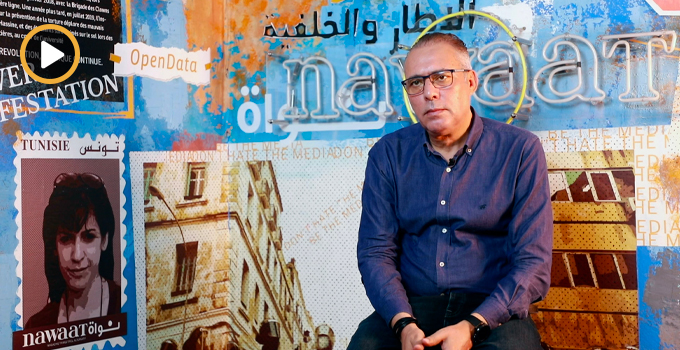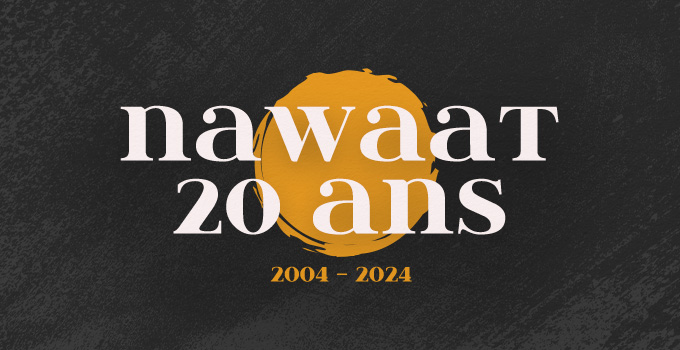
source: Daily Star
| Saturday, July 23, 2005
Tunisia serves as a prime example of how Arab governments, by exercising subtle control over the media, are able to prevent a genuinely free press from emerging in the Middle East.
Gone are the days when Arab governments could just throw journalists in jail for no good reason. Over the last couple of decades, some Arab states have developed ways of controlling media content through a complex system where all the players of a given Arab economy are dependent on the goodwill of the state.
Those means prove to be especially useful now that the Middle East has fallen under the spotlight of international concerns and has to answer with facades of reform.
Take for example, the case of president of the Press Syndicate in Tunisia Lutfi Hajji who has recently worked for Al-Jazeera as a correspondent. Hajji was denied the right to appear on television screens after he founded the syndicate with other Tunisian journalists.
The rest of the founders of the Press Syndicate were also marginalized either by having their press cards withheld, or by being barred from appearing on television.
But today, the Tunisian Press Syndicate is part of the International Federation of Journalists. Although the Press Syndicate is officially recognized by the Tunisian government, it is in reality a vulnerable organization in a lawless environment, according to Hajji.
The government controls the flux of advertisements, a major source of revenue, in any given newspaper by indirectly intimidating companies who place ads in newspapers that are critical of the government. Whenever such ads are placed, the government sends “inspectors,” who present the firms with tax demands, says Hajji.
And using similar threats, the Tunisian state can cut the clientele base of a given newspaper by intimidating subscribers or distributors who are dependent in one way or another on government’s goodwill.
The government has also rendered newspapers dependent on it as a major source of revenue through public announcement and propaganda advertisements. “The Tunisian state even subsidizes paper,” says Hajji.
He adds that whenever media bodies cooperate with the Tunisian government, officials turn a blind eye on breaches.
“There is no rule of law governing the working conditions of the journalist, who’s left at the mercy of companies that have unrestricted powers, through their clientelistic ties with the government” says Hajji.
He contrasts these working conditions with those of journalists in the Gulf who have coherent and law-enforced contracts that protect their professional and civil rights.
For Hajji, “openness is crucially important not just for ethical reasons but also to enhance the situation of the journalist, as the state can at all times marginalize the journalist within press organizations.”
This repressive situation is exemplified by a narrow intellectual spectrum prevailing in the press as newspapers have no editorial boards, “and there is only one guy who decides on what is going to be said, usually someone who has deep interests in following what the government wants him to write” says Hajji.
Thus, even if Tunisian presses are overwhelmingly privately owned, they follow the state’s slogans for economic and security purposes so much so that “even the government has sarcastically recognized that newspapers have similar opinions” says Hajji.
He adds that any impetus for change is efficiently strangled by rigid bureaucratic rules that continue to portray a facade of openness.
For example, to easily prohibit unmonitored entry in the Tunisian market, the government holds the monopoly right of issuing publishing licenses.
“Candidates who want to open newspapers or other mediums can sometimes stay more than a year waiting to get their licenses, for so-called paper-work reasons” says Hajji.
He is more optimistic about Arab cooperation when it comes to his immediate neighbors: “We work a lot with the Moroccan and Algerian journalists and Morocco has moderately open media.”
As for other journalists throughout the Arab world, there is no institution that effectively represents them. Unfortunately, “the existing Arab press syndicate is a body that is a mere reflection of the official line of various Arab governments.” says Hajji.
He adds that “it is crucial to have institutions like NGOs who make sure that journalists can express themselves freely, and keep their basic rights protected.”
Today, neither the Tunisian Press Syndicate nor the Arab Press syndicate operates unhindered by the state.




iThere are no comments
Add yours